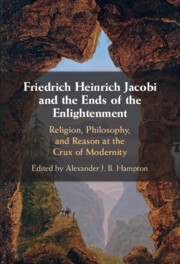Karin de Boer has given the best account so far of the reform of Wolffian metaphysics that Kant promised. But does such a reform cohere with the revolutionary goal that Kant also affirmed? Standpoint is singled out as the central meta-concept of Kant’s revolutionary goal, and it is argued that, in the second and third critiques, Kant himself developed his revolutionary insight into the perspectival character of both concept and judgement in ways that he did not anticipate at the time of the first critique, when his promise to reform metaphysics was made. The question is raised what room Kant’s revolution leaves for doctrinal and not merely disciplinary judgements in both general and special metaphysics, and also whether the opening of new vistas may have drained metaphysical reform of its interest.
